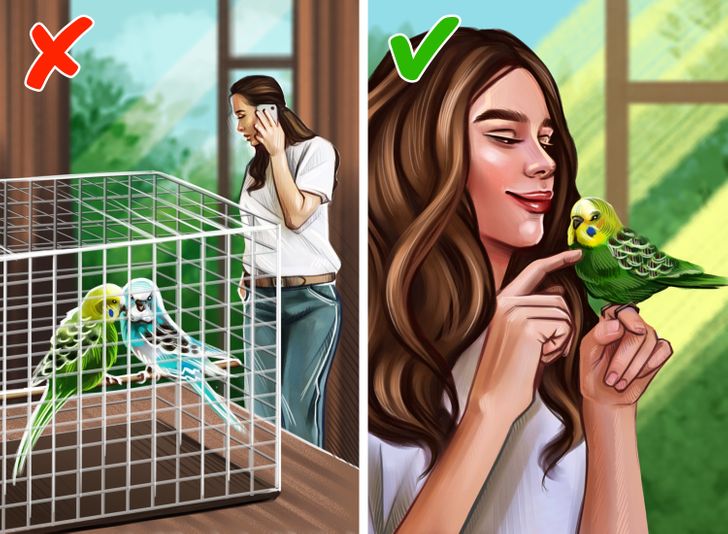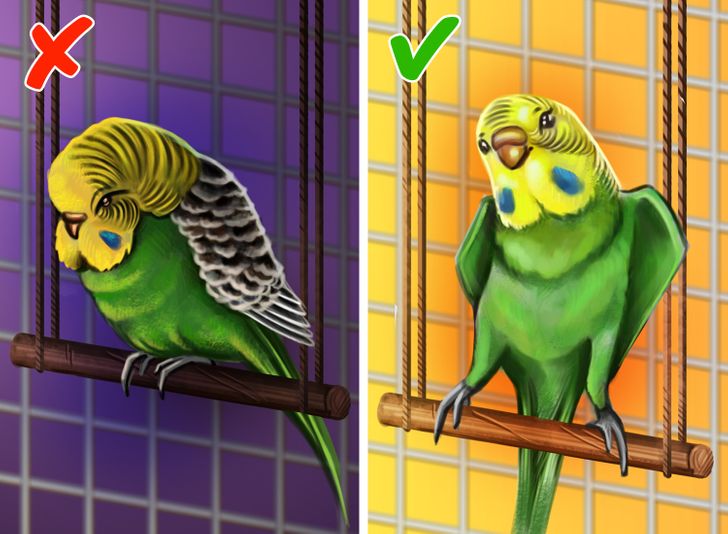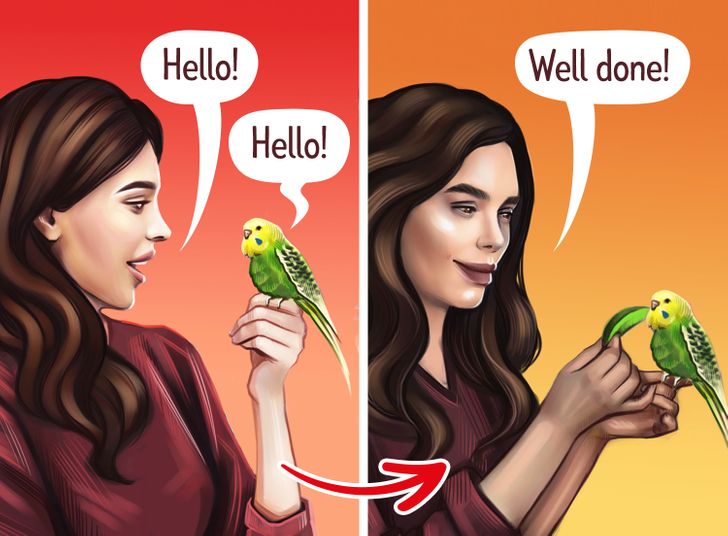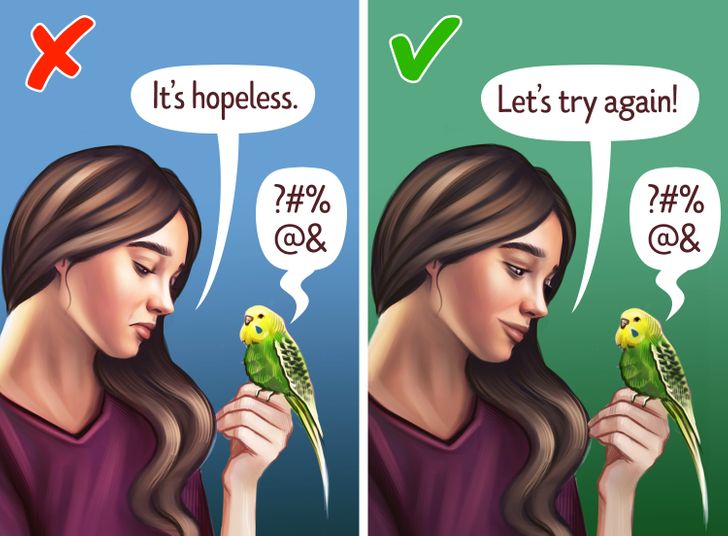How to Teach Your Parakeet to Talk
The anatomy of parrots doesn’t allow them to pronounce words the same way as we do. Because they don’t have vocal cords, they can’t make sounds like we do. So, they try to imitate the sounds they hear in their own way.
5-Minute Crafts found out what you can do to train a parakeet to say short words and phrases.
What affects a parakeet’s motivation to learn

-
Age. It’s important to choose a young bird. It will increase the chances that the bird will want to talk to you. Most old birds were kept in cages with other parrots. They grew up without needing to talk to people. Old birds can learn a word or 2, but no more.
-
Affection. If your parrot loves spending time with you, it will want to speak your language. The closer you are, the more effort it will put in to learn. The bird should not be afraid of you because if it is, there’s no way you can build trust. Never do anything that could scare or harm the bird. This includes moving fast, especially above its head, and banging on the cage. Be respectful.
-
Gender. Most males can make more sounds than females. This is why it’s easier to train a male to speak. Maybe, it’s because they often have to sing loudly to attract females in their natural habitat.
-
Presence of other parrots nearby. It’s better if the bird is alone, and there are no other birds around. 2 birds living together would rather talk to each other than to a human. They are social birds, and one of the reasons why they are eager to speak to humans is because they are always talking to each other when there are other birds around. Now, you’re their family and they listen to you.
Training process

-
Make sure that your parrot is happy. If their cage is not big enough or if they are hungry or ill, they won’t be eager to learn anything new. If your parakeet is happy, it will have lots of energy and it will sing all the time. If you see that it’s down and silent, it’s time to see a vet, not try to talk. A bird that is ill won’t be able to concentrate on the learning process.
💡A parakeet that just had a good meal is more likely to learn new things, like tricks or words. -
Find the right time for training. Birds are more eager to learn new words in the morning when their brains are well-rested. This way, they learn new information faster. In the morning, parakeets are full of energy. But remember that it’s important to talk to parrots over the course of the entire day, especially if it’s alone. They should hear human speech as often as possible to make them want to repeat the sounds.

-
Start with simple words and repeat them every time you have a chance. Because they don’t have vocal cords, some birds can’t learn to say complex words. Talk to them as if they are babies. When you come and leave, say “Hello” and “Bye.” When you give them food, say “Thanks.” Whenever you do something, say words to build links in the bird’s brain. Say the words clearly with the same tone.
💡 When your bird has learned a word or 2, chances are, it will learn new words faster and easier. -
Use treats and say nice things. Always reward your parakeet for its successes. It will stimulate the bird. You can use pieces of fruit. This will let the bird know that they are doing things right. Don’t forget about nice things. Everyone likes to be praised, even birds.
💡 You’ll understand that the lessons are effective when you notice your parakeet looking at your mouth. Some birds like to have their heads close to their owners’ mouths when they are talking.

-
Be patient and don’t lose hope. Ideally, you will have time to train the bird every day. But even if you do everything right, there’s a chance the bird won’t be able to learn. While some parrots quickly learn new words, others might need months or even years to say their first word. It’s possible that your bird will never be able to say something we will understand. If you see that the bird can’t say anything, try teaching it to whistle. Many birds find it much easier to whistle. After that, you can try words again.
💡 There’s also a chance that your bird is already talking but you can’t understand it. Many birds have a very high voice, and they talk fast. So listen closely, maybe your bird has already learned words you can recognize.